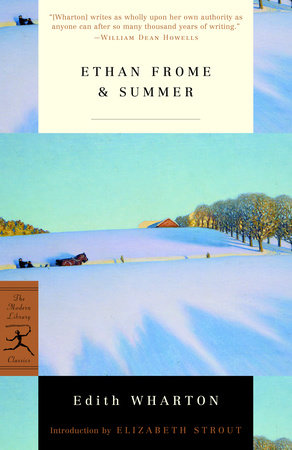Ethan Frome & Summer Reader’s Guide
By Edith Wharton


1. Many critics have disagreed with Wharton’s choice of narrative style in Ethan Frome, saying it is unrealistic that an outside character could intimately know all the details of the Frome household. Wharton, however, felt the narrative style necessary to convey the harshness of the story and the taciturn nature of New Englanders. What are the pros and cons of the third person narrative? Do you feel the narrative style hurts or hinders the story and its implied moral?
2. Consider Ethan’s courting of Zeena and his "courting" of Mattie. How do they differ? Do you feel Ethan is a different person at these two times in his life, or is it Mattie that makes the difference?
3. Do you feel the "accident" at the end of Ethan Frome was Wharton’s way of ending the story in a neat and tidy way? If not, what are the implications of the two disfigured people and their new life?
4. At first, Charity is ashamed of her biological ties to "the Mountain." Yet, she visits some of the inhabitants with Harney, the person whose opinion matters most to her. Why does she put herself in this situation?
5. Consider the town name of North Dormer, the most popular library book being Uncle Tom’s Cabin, and the disrepair of many estates around North Dormer. What is Wharton saying about New England, its society, and its attitude to art?
6. Summer’s ending marriage between Charity and Lawyer Royall is quite disturbing for many readers. What are the implications of this marriage? Consider his first interactions with Charity in the beginning of the story compared to his later interactions with her at the end of the story. Has his character changed?
7. While the novellas take place in New England, Ethan Frome’s action revolves around winter and Summer’s action revolves around summer. Both dark, sexually explorative tales, why did Wharton choose to set them in two different seasons? How do the seasons further, and hinder, the stories?
8. Compare Mattie, a more reserved woman, and Charity, who at first is independent and assertive. While their personalities are at first different, their final situations are sadly quite similar. What is Wharton saying about New England society and the women who live in it?
Just for joining you’ll get personalized recommendations on your dashboard daily and features only for members.
Find Out More Join Now Sign In